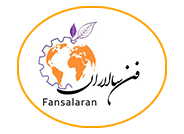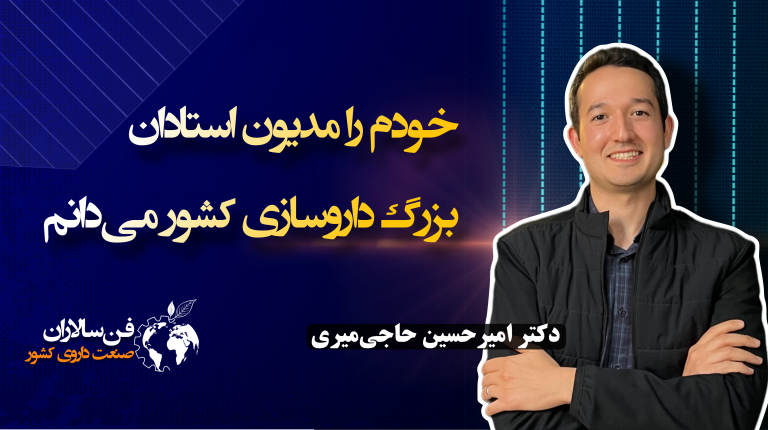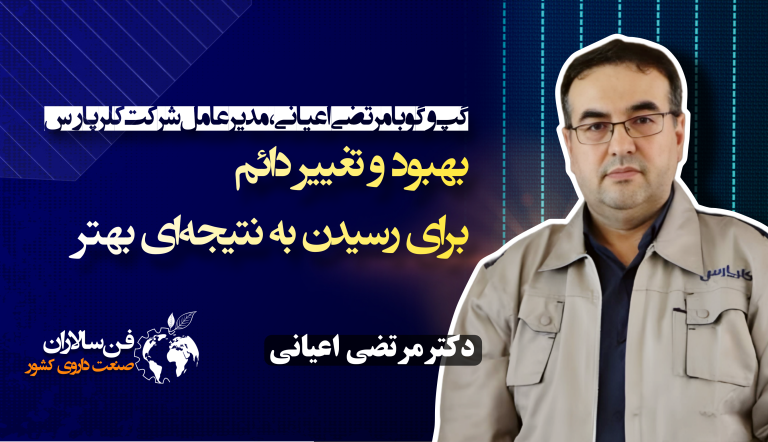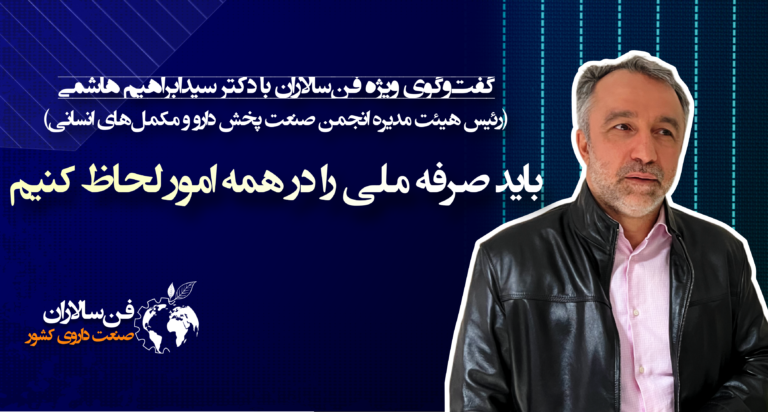Sure! Here’s the English translation of the full text, as requested, with no additions:
I Owe Everything to the Great Professors of Pharmacy in Iran
An exclusive interview with Dr. Amirhossein Hajimiry – Fansalaran
Introduction:
You really need to meet Dr. Amirhossein Hajimiry in person to understand the true meaning of “character.”
We briefly worked together, and one memorable spring afternoon, standing at the entrance of a major pharmaceutical company, we spoke about the current state of affairs—it felt like a cinematic moment unfolding before us.
It reminded me of the closing scene of the iconic film Casablanca, when Rick (Humphrey Bogart) tells Captain Renault (Claude Rains): “This is the beginning of a beautiful friendship.”
It was a strange, poetic feeling (and in the words of the film Breakfast with Giraffes — dark!) to recall such a legendary line from cinema history right at the gates of a pharmaceutical firm.
A year later, when both of our paths had shifted, Dr. Hajimiry graciously agreed to collaborate with us—he became a cherished colleague of our emerging journal, Fansalaran. Respect to him.
Turns out, he’s not the type to fuss about rewards or recognition. With remarkable discipline, he contributed columns and articles that became foundational pillars of the journal—without ever asking for anything in return.
A true gentleman in every sense of the word.
An academic, a visionary pharmacist, a gifted writer—and now, he has taken on a new official role. We sincerely wish him the best. He is a forward-thinker, someone who works to clear today of distractions and extend the reach of responsibility, seeing light and clarity in the hands of the next generation.
This interview was conducted before his official appointment at the Iranian Food and Drug Administration (early December 2024) and is published with his permission.
Questions have been removed for clarity.
Respectfully,
The Editor-in-Chief
My official first name is Seyed Hossein, born in March 1989 in Qazvin. Due to several coinciding historical events at the time of my birth, I was called Amirhossein—and the name stuck.
My father is a mechanical engineer and a retired university professor, and my mother is a Persian literature expert. Both are now self-employed. I have an older sister who holds a PhD in microbiology.
At the time when I started school, my mother was also studying at university. So, Persian literature became an inseparable part of our life. I remember attending her courses like Hafez Studies I & II and Saadi (especially Gulistan). I consider myself fortunate to say that Saadi played a major role in shaping my worldview.
My wife is also a pharmacist, working in oncology at the Cancer Institute of Imam Khomeini Hospital. We have a daughter named Delyar, who is in first grade.
My paternal grandfather used to run a traditional herbal shop and grocery store. He also traded gum tragacanth—our family was known by the nickname Katirayi in Qazvin. As a child, I often visited his fascinating shop full of herbal jars. I think this experience, at least subconsciously, sparked my interest in pharmacy.
But it was my cousin, Hamed—five years older than me—who truly paved the way. He was like an older brother to me.
Hamed Hajimiry, a senior in pharmacy from Tehran University (Class of 2001), was active and influential both as a student and later professionally. He had a major impact on my outlook toward this field.
I took the national university entrance exam in 2006. Based on my results, I had four options:
Pharmacy at Tehran University (public), Dentistry at Azad University Tehran, Civil Engineering at Azad University Qazvin, and Medicine at Qazvin (based on a new government policy that gave priority to your place of residence).
Everyone in my family suggested a different path. After consulting with my cousin, I was confident that pharmacy was the best fit for my personality and aspirations.
I was a very active student—publishing student journals, serving for three years on the student council, organizing pharmacy student seminars, and participating in various academic and professional associations.
Throughout my studies, I believed I needed to leave behind more than just a thesis—I needed to make a lasting impact. I believe I did. Later, during my PhD, I completed anything that had been left unfinished during my undergraduate years.
In my final days as a general pharmacy student, I had a strong desire:
I wished someone had told me certain things back in my first year. I shared this concern with two professors—Dr. Kheirallah Gholami and Dr. Mohammadreza Javadi—which led to the creation of a short-term training program called “The Seven-Star Pharmacist.”
The program was first held in 2012 and has since been repeated 12 times for pharmacy students across Iran, training over 1,000 students. Its aim has always been to empower pharmacy students from their first year to make the most of their education and to “light their own lamp.”
I owe everything to the professors under whom I had the honor to study.
Among the late pioneers of pharmacy, Dr. Hassan Farsam stands out. He has always been a source of inspiration for me. A shining comet in the sky of Iranian pharmacy, he was the symbol of an impactful pharmacist. Although his specialty was pharmaceutical chemistry, he left lasting legacies in many branches of pharmacy.
I was lucky to take a course with him—Pharmacy Ethics. I lovingly dedicated my book “Practical Toolbox for Pharmacists” (published in 2022) to him.
I must also mention Dr. Kheirallah Gholami, who from my first semester, warmly supported and mentored us. Many ideas—including the Seven-Star Pharmacist program—were born from his guidance.
Beyond his personality, the story of how clinical pharmacy was established in Iran and how he developed pharmaceutical care services is deeply inspiring.
Dr. Mohammadreza Javadi, a former professor at the faculty, taught me how to turn ideas into action.
In the final years of my undergraduate program, I had the privilege of meeting Dr. Alireza Hayatshahi, a progressive figure who spent most of his career in the U.S., with only a few years as a faculty member at Tehran University. He taught me much about professionalism and service orientation. Sadly, he also left Iran.
But for me, Dr. Rasoul Dinarvand is a complete role model.
He is a world-class scholar, always accessible to students, even during his peak executive roles. An internationally respected scientist, a wise policymaker, and a thoughtful manager.
He supervised my undergraduate thesis. During his tenure as Dean, student activities flourished.
The final professor who deeply impacted me during my general studies was Dr. Ahmadreza Dehpour, a distinguished professor at Tehran University of Medical Sciences. A noble soul, a true university professor, and a mentor dedicated to nurturing future generations—he remains one of the most cherished figures in my life.
Service orientation defines the pharmacist’s professional role across all societies. It’s rooted in trust and provides a foundation for offering healthcare services.
I firmly believe that as long as society views medicine as a “commodity,” the pharmaceutical profession will continue to decline.
Of course, modern business models can deliver goods faster and more efficiently. People have the right to order all their essentials through their phones.
But look at pharmacies today—pharmaceutical services are fading, and pharmacists are being reduced to retailers.
Newly opened pharmacies often resemble beauty stores or supplement shops more than healthcare service centers.
What clear message do they convey to the public? What distinguishes them from a supermarket?
The June 2021 pharmacy regulations list over 20 services pharmacists can provide, yet instead of systematically planning for these services and integrating them into national health policies, many pharmacists are entangled in three decades of recurring pharmacy issues.
In any case, we are all responsible for documenting what we go through—for the sake of the future.
The hardships we experience may one day become just a short, unremarkable paragraph—but it must still be recorded, so others know what truly remains of us.
After graduation, I was exempt from military service and started my mandatory training at Alborz Darou Pharmaceutical Company in the Alborz Industrial City of Qazvin.
Due to high demand for positions in the pharmaceutical industry, I had to wait 15 months for my turn. Still, I didn’t wait passively—by early 2013, under Dr. Mehdi Pirsalehi’s leadership, I joined Alborz Darou.
My interview was conducted by Dr. Pouya Farhat (then Deputy CEO). It was a brief chat. I told him I didn’t want to be treated as a temporary trainee.
Wherever I work, I want to leave a lasting impact.
Initially, I hoped for a role in the central office so I could remain in Tehran. But I realized that to truly learn the industry, I had to go to the factory.
I was supposed to join the Quality Assurance department, but at the last minute, I was assigned to the newly established injectables production unit.
Those were some of the toughest days of my life—but ultimately, they were full of growth and blessings.
Alborz Darou was a real learning ground for me, surrounded by experienced pharmacists, skilled managers, and a committed team that aimed to make the company the most profitable in Iran and the first to hit 100 billion IRR net profit in a year.
Soon, Dr. Farhat became CEO. I saw Alborz Darou as a well-tuned machine that needed a bold and motivated driver—and that’s exactly what he was.
I was promoted to Lab Director 15 months into my tenure.
Despite challenges—being younger and less experienced than most staff—I believe I had a productive management period and left a meaningful legacy.






